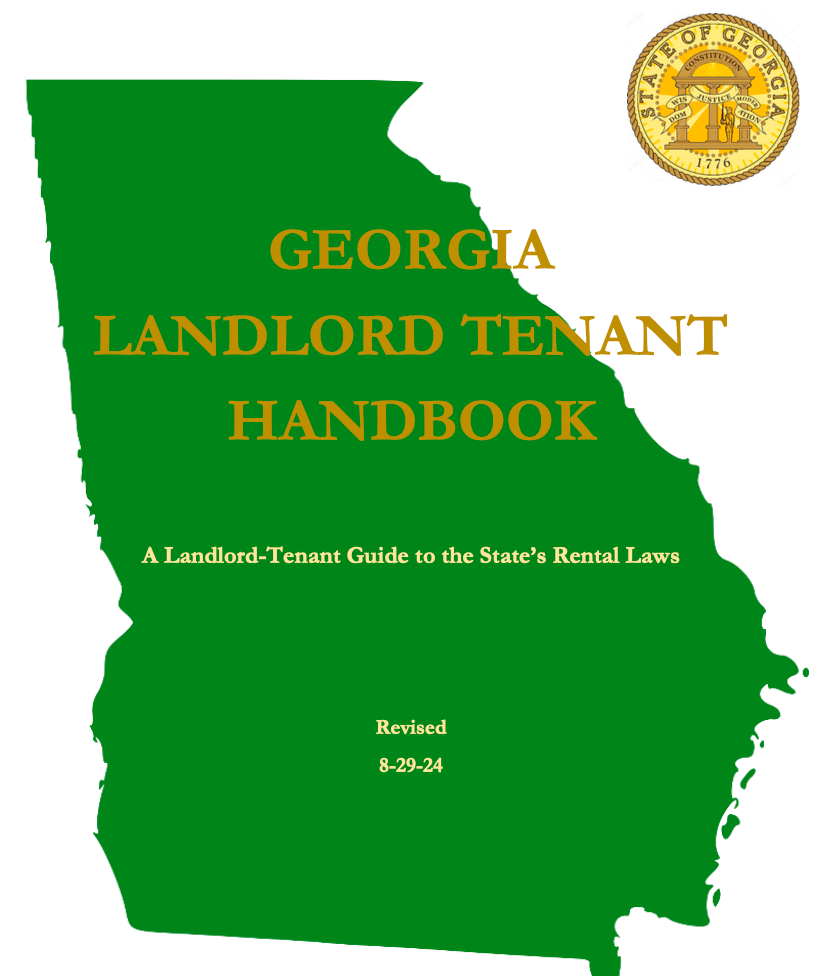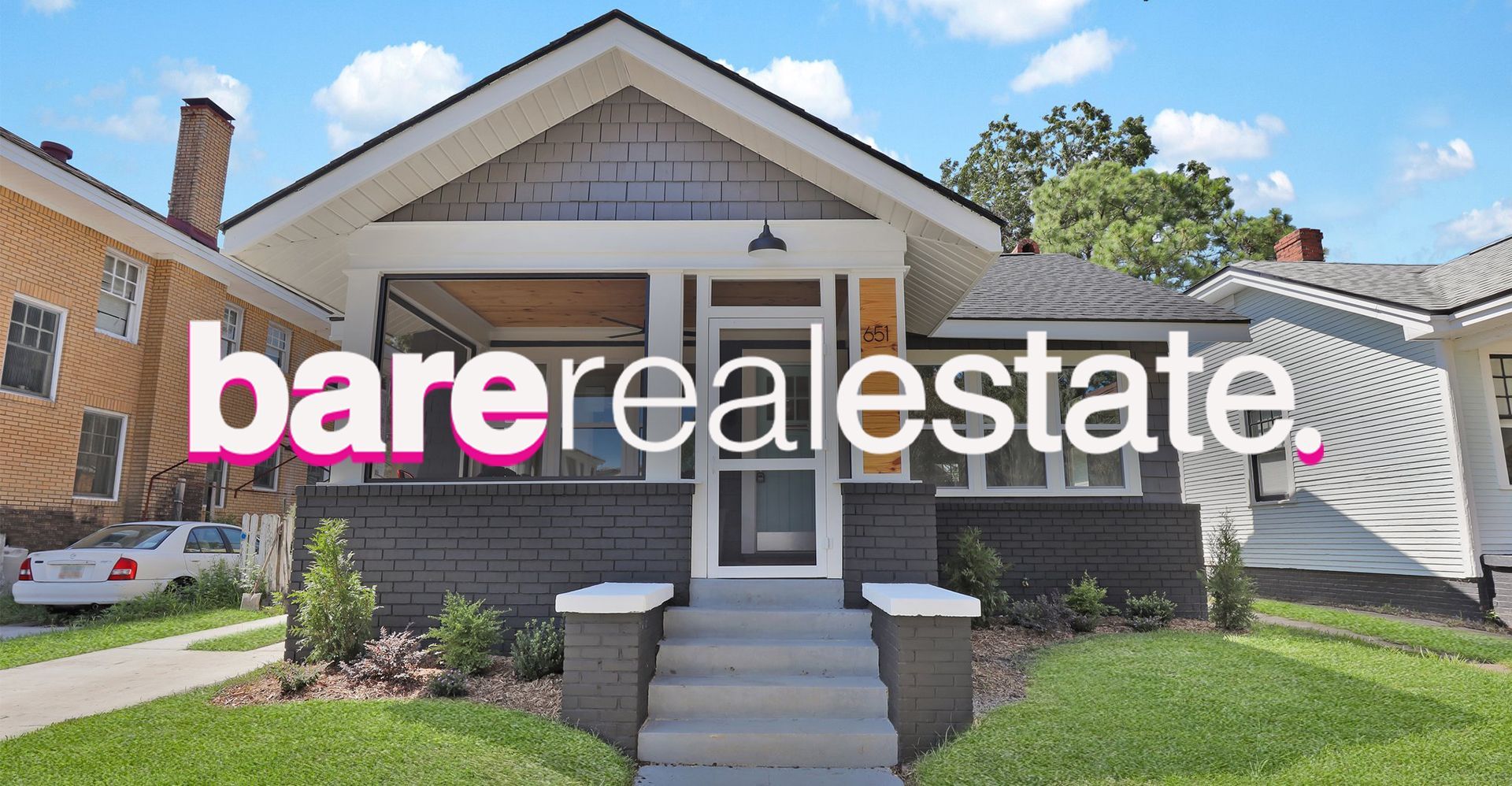Mastering Property Management: Essential Maintenance Tips for Every Landlord
Danny Worsley • May 27, 2025
Landlord Maintenance Tips
New Paragraph

Navigating Tenant Rights and Landlord Responsibilities: A Comprehensive Guide for Property Owners and Tenants Navigating the intricate world of tenant rights and landlord responsibilities can be a daunting task for both seasoned property owners and new tenants. Understanding rental agreements and tenant laws is essential to fostering a healthy landlord-tenant relationship, ensuring that both parties are protected and informed. With housing regulations constantly evolving, staying updated on the legal rights for tenants and the obligations of landlords is crucial for maintaining compliance and avoiding disputes. This comprehensive guide aims to demystify the complexities of property management, offering clear insights and practical advice to help you confidently manage your rental properties or navigate your rights as a tenant. Whether you're a property owner, investor, or tenant, our expert tips and resources will empower you to make informed decisions and cultivate successful rental experiences. Understanding Tenant Rights and Landlord Responsibilities In the complex world of property rental, understanding the rights and responsibilities of both tenants and landlords is crucial. This section explores the key aspects of tenant rights, common landlord responsibilities, and the importance of rental agreements in establishing a clear and fair relationship between both parties. Key Aspects of Tenant Rights Tenant rights are fundamental protections that ensure a safe and fair living environment for renters. These rights vary by jurisdiction but generally encompass several key areas. Privacy and quiet enjoyment are essential tenant rights. Landlords must provide notice before entering the property and respect the tenant's right to peaceful occupation of their rented space. Safety and habitability are also critical. Tenants have the right to a safe and well-maintained living space , with landlords responsible for ensuring that the property meets health and safety standards. Tenants also have rights regarding rent increases, evictions, and security deposits . These protections help prevent unfair treatment and provide stability in housing situations. Common Landlord Responsibilities Landlords play a crucial role in maintaining the property and ensuring a positive rental experience. Their responsibilities are diverse and significant. Property maintenance is a primary duty. Landlords must keep the property in good repair, addressing issues promptly to maintain a safe and habitable environment for tenants. Financial obligations include paying property taxes, insurance, and mortgage payments. Landlords are also responsible for complying with local housing codes and regulations. Respecting tenant rights is another key responsibility. This includes providing proper notice before entering the property, maintaining tenant privacy, and following legal procedures for actions like evictions or rent increases. Importance of Rental Agreements Rental agreements serve as the foundation for a successful landlord-tenant relationship. These documents outline the terms and conditions of the tenancy, providing clarity and protection for both parties. Key elements of a rental agreement typically include: Rent amount and due date Length of tenancy Security deposit details Maintenance responsibilities Rules regarding pets, smoking, and other potential issues A well-drafted rental agreement can prevent misunderstandings and conflicts, setting clear expectations from the outset of the tenancy. It's crucial for both landlords and tenants to thoroughly review and understand the rental agreement before signing. This ensures that all parties are aware of their rights and obligations throughout the tenancy. Navigating Legal Rights for Tenants Understanding the legal landscape of tenant rights is essential for both renters and property owners. This section delves into tenant laws, housing regulations, and strategies for building strong landlord-tenant relationships. Overview of Tenant Laws Tenant laws provide a framework for fair and equitable housing practices, protecting the rights of renters while also outlining their responsibilities. Anti-discrimination laws are a cornerstone of tenant protection. These regulations prohibit landlords from discriminating against potential tenants based on factors such as race, gender, religion, or disability. Eviction protections are another crucial aspect of tenant laws. These regulations outline the specific circumstances under which a landlord can evict a tenant and the proper procedures that must be followed. Rent control laws , where applicable, limit how much and how often landlords can increase rent, providing stability for long-term tenants. Exploring Housing Regulations Housing regulations encompass a wide range of rules and standards designed to ensure safe and fair housing practices. Building codes set minimum standards for construction and maintenance, ensuring that rental properties are safe and habitable. These codes cover aspects such as electrical systems, plumbing, and structural integrity. Health and safety regulations address issues like mold, lead paint, and pest control. Landlords are typically required to maintain properties in compliance with these standards. Local zoning laws can impact rental properties by regulating factors such as occupancy limits and permissible property uses. Both landlords and tenants should be aware of these regulations to ensure compliance. Building a Strong Landlord-Tenant Relationship A positive landlord-tenant relationship is built on clear communication, mutual respect, and understanding of each party's rights and responsibilities. Open communication is key. Landlords should be responsive to tenant concerns, while tenants should promptly report any issues with the property. Regular property inspections, conducted with proper notice, can help identify and address maintenance issues before they become major problems. Clear policies and procedures for rent payment, maintenance requests, and other common interactions can help prevent misunderstandings and conflicts. Building trust through consistent, fair treatment and respect for privacy can lead to longer tenancies and fewer disputes, benefiting both landlords and tenants.

Navigating the Savannah Real Estate Landscape: May 2025 Trends and Insights Navigating the Savannah Real Estate Landscape: May 2025 Trends and Insights Savannah Real Estate Market Overview Current Housing Market Dynamics Key Trends and Price Shifts Property Values in Savannah Emerging Neighborhoods and Opportunities Hotspots for Investment Growth in Emerging Neighborhoods Savannah Future Development Prospects Strategies for Buyers and Sellers Navigating Competitive Markets Maximizing Savannah Investment Opportunities Tips for First-Time Homebuyers As the sun sets over the charming streets of Savannah, the city's real estate market is bustling with opportunities that promise to captivate both seasoned investors and first-time homebuyers alike. This May 2025, the Savannah housing market is showcasing intriguing shifts, with property values in Savannah reflecting a dynamic landscape ripe for exploration. From historic gems nestled in emerging neighborhoods to modern developments that cater to contemporary lifestyles, Savannah's real estate scene is as vibrant as its storied past. Whether you're eyeing a new home, contemplating selling, or seeking lucrative Savannah investment opportunities , understanding the latest real estate trends of May 2025 will empower you to make informed decisions. Join us as we delve into the factors shaping this picturesque coastal city, offering insights and guidance to navigate its ever-evolving market with confidence. Savannah Real Estate Market Overview The Savannah real estate market in May 2025 presents a dynamic landscape, shaped by various economic factors and local developments. Let's dive into the current dynamics, trends, and property values that define this vibrant Southern gem. Current Housing Market Dynamics The Savannah housing market is experiencing a period of robust activity, characterized by high demand and evolving buyer preferences. Recent data from Redfin shows a competitive market with homes often receiving multiple offers. Inventory levels have slightly increased compared to previous years, offering more options for buyers. However, this hasn't significantly dampened competition, especially for properties in desirable neighborhoods. The market continues to favor sellers, with many homes selling above asking price. This trend is particularly pronounced in historic districts and areas close to downtown, where charm and location command premium prices. Key Trends and Price Shifts According to the latest market report , Savannah's real estate landscape is witnessing several notable trends. The city's growing popularity among remote workers and retirees is driving demand for homes with dedicated office spaces and age-in-place features. Sustainability is becoming a key factor, with energy-efficient homes and those with smart home technology seeing increased interest. This shift is reflected in higher valuations for properties with these features. Price-wise, the market has seen steady appreciation. The median home price has increased by 8% year-over-year, outpacing many other mid-sized cities in the Southeast. However, this growth is showing signs of moderation, suggesting a move towards a more balanced market. Property Values in Savannah Property values in Savannah continue to demonstrate resilience and growth. The historic charm, coupled with ongoing urban development, has contributed to sustained appreciation across various neighborhoods. The downtown area and surrounding historic districts continue to command the highest prices, with values appreciating at around 10% annually. Emerging neighborhoods on the outskirts are seeing even higher percentage gains, albeit from a lower base price. Investors and homeowners alike have benefited from this trend, with many properties outperforming other investment vehicles. However, it's important to note that this rapid appreciation is expected to normalize in the coming years, as the market finds a new equilibrium. Emerging Neighborhoods and Opportunities As Savannah's real estate market evolves, new areas are coming into focus, offering exciting prospects for both investors and homebuyers. Let's explore the hotspots, growth patterns, and future development plans shaping the city's landscape. Hotspots for Investment Savannah's investment landscape is diversifying, with several neighborhoods emerging as promising hotspots. The Savannah Southern Homes blog highlights areas like Ardsley Park and Parkside as particularly attractive for investors. These neighborhoods offer a blend of historic charm and modern amenities, attracting a mix of young professionals and families. Properties here have seen consistent appreciation, with potential for further growth as infrastructure improvements continue. The Starland District, known for its artistic vibe, is another area gaining traction. Its unique character and proximity to downtown make it a favorite among creatives and entrepreneurs, driving both residential and commercial property values upward. Growth in Emerging Neighborhoods Savannah Emerging neighborhoods in Savannah are experiencing significant growth, driven by a combination of affordability and potential. Areas like Midtown and the Waters Avenue corridor are seeing increased interest from both developers and homebuyers. These neighborhoods offer more affordable entry points compared to the historic district, while still providing easy access to downtown amenities. As a result, they're attracting a diverse mix of residents, from first-time homebuyers to investors looking for rental properties. Local initiatives to improve infrastructure and attract businesses are further fueling growth in these areas. This combination of public and private investment is creating a positive feedback loop, enhancing the appeal and value of properties in these emerging neighborhoods. Future Development Prospects Savannah's future development prospects look bright, with several large-scale projects in the pipeline. The Andalusia Star-News reports on planned developments that are set to reshape parts of the city. One significant project is the redevelopment of the Canal District, which aims to create a new mixed-use neighborhood with residential, commercial, and recreational spaces. This project is expected to have a ripple effect on surrounding areas, potentially opening up new investment opportunities. Additionally, plans for expanding the Savannah/Hilton Head International Airport and improving transportation infrastructure are likely to boost property values in previously overlooked areas. These developments underscore the importance of staying informed about city planning and zoning changes when considering real estate investments in Savannah. Strategies for Buyers and Sellers Navigating the Savannah real estate market requires a strategic approach, whether you're buying, selling, or investing. Here are some key strategies to consider in the current market conditions. Navigating Competitive Markets In Savannah's competitive real estate market, buyers need to be prepared and agile. Here are some strategies to increase your chances of success: Get pre-approved for a mortgage to strengthen your offer. Work with a local real estate agent who understands the nuances of different neighborhoods. Be prepared to act quickly when you find a property you like. Consider properties that may need some updates – they often face less competition. For sellers, it's important to price your property correctly from the start. Overpricing can lead to extended time on the market, while underpricing might leave money on the table. A comparative market analysis from a local real estate professional can help you find the sweet spot. Maximizing Savannah Investment Opportunities Savannah offers diverse investment opportunities, from historic homes to modern developments. To maximize your potential returns: Focus on areas with strong rental demand, such as those near SCAD or major employers. Consider properties with potential for value-add improvements. Look into emerging neighborhoods where prices are still relatively low but showing signs of appreciation. Explore mixed-use properties that can provide both rental income and potential for commercial tenants. Remember, successful real estate investing in Savannah often requires a long-term perspective. While the market has shown strong appreciation, it's important to factor in ongoing costs like maintenance, especially for historic properties. Tips for First-Time Homebuyers For first-time homebuyers in Savannah, the market can seem daunting, but there are strategies to make the process smoother: Start by determining your budget and sticking to it. Factor in not just the mortgage, but also property taxes, insurance, and potential HOA fees. Explore first-time homebuyer programs offered by the state of Georgia or local Savannah initiatives. Don't overlook up-and-coming neighborhoods – they can offer more affordable options with potential for appreciation. Consider a home inspection, even if it's not required. This can save you from costly surprises down the line, especially with older homes. Lastly, be patient and don't feel pressured to make an offer on a home that doesn't feel right. The Savannah market may be competitive, but new listings come up regularly. With persistence and the right strategy, you'll find a home that meets your needs and budget.

There are so many good reasons to communicate with site visitors. Tell them about sales and new products or update them with tips and information. Here are some reasons to make blogging part of your regular routine. Blogging is an easy way to engage with site visitors. Writing a blog post is easy once you get the hang of it. Posts don’t need to be long or complicated. Just write about what you know, and do your best to write well. Show customers your personality When you write a blog post, you can really let your personality shine through. This can be a great tool for showing your distinct personality. Blogging is a terrific form of communication Blogs are a great communication tool. They tend to be longer than social media posts, which gives you plenty of space for sharing insights, handy tips and more. It’s a great way to support and boost SEO Search engines like sites that regularly post fresh content, and a blog is a great way of doing this. With relevant metadata for every post so search engines can find your content. Drive traffic to your site Every time you add a new post, people who have subscribed to it will have a reason to come back to your site. If the post is a good read, they’ll share it with others, bringing even more traffic! Blogging is free Maintaining a blog on your site is absolutely free. You can hire bloggers if you like or assign regularly blogging tasks to everyone in your company. A natural way to build your brand A blog is a wonderful way to build your brand’s distinct voice. Write about issues that are related to your industry and your customers.



